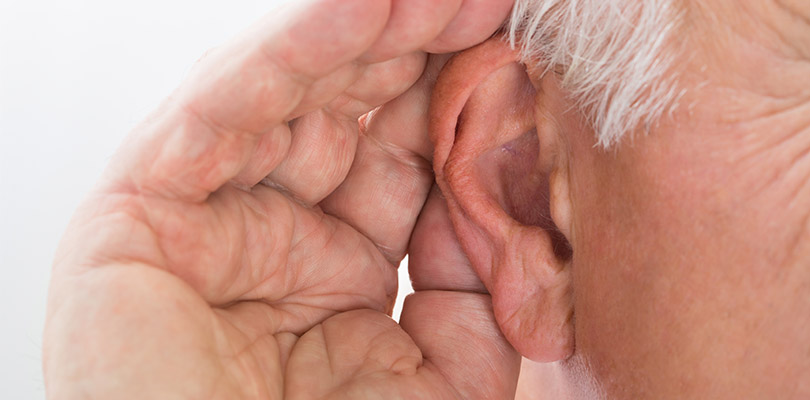Allergies 101: What Are Allergies?
An allergy is a very common health problem that occurs when the body's immune system identifies an otherwise harmless substance and reacts as if it is harmful. The substances that cause allergic reactions are allergens.
When someone has an allergy, their immune system makes an antibody called immunoglobulin E (IgE). These antibodies respond to allergens. The symptoms that result are an allergic reaction.
What Causes Allergies?
Many substances (allergens) can cause allergies.
Pollen allergy, aka, hay fever, can involve various pollens depending on the time of year or the region you're living in. Goldenrod is the most common allergen, but grasses, trees, and other plants also release pollen.
Pollen allergy is referred to medically as allergic rhinitis.
Allergic rhinitis is also triggered by common indoor allergens such as pet dander, mold, dust mites and cockroach particles. People with perennial allergic rhinitis have nasal symptoms all year-round.
While allergen triggers are the most common culprits, irritants such as smoke and strong odors can also cause symptoms – as can temperature changes and humidity. It's the inflammation in the nasal lining that increases sensitivity to these irritants. Medications and latex can cause an allergic reaction.
Allergy Symptoms
The classic symptoms of an allergic reaction are in the nose, sinuses, lungs, throat, ears, stomach, or on the skin. Some people also get asthma symptoms, such as wheezing. A serious, life-threatening reaction called anaphylaxis can also occur – which requires immediate medical attention.
Anaphylaxis symptoms
These can occur suddenly and can progress quickly. The early symptoms may be mild, such as a runny nose, a skin rash or a "strange feeling." These can quickly lead to more serious problems, including:
- Trouble breathing
- Hives or swelling
- Tightness of the throat
- Hoarse voice
- Nausea
- Vomiting
- Abdominal pain
- Diarrhea
- Dizziness
- Fainting
- Low blood pressure
- Rapid heartbeat
- Feeling of doom
- Cardiac arrest
People who have had a severe allergic reaction are at risk for future reactions. Even if your first reaction is mild, future reactions might be more severe.
If you think you are having anaphylaxis, use your self-injectable epinephrine and call 911. Do not delay. Do not take antihistamines in place of epinephrine. Epinephrine is the most effective treatment for anaphylaxis.
Tips for Taking Control of Allergies
If you know what triggers your allergies – like your neighbor's cat – simply avoid it.
But it also helps to keep track of your symptoms – when they occur, how long they last, and what seems to cause them.
Talk to a doctor about allergy tests. Even if it's difficult to know exactly what the allergy trigger is, an allergist can help determine exactly what's triggering your symptoms.
How Doctors Diagnose Allergies
Doctors take these steps to diagnose allergies:
- Personal and medical history. Your doctor will ask multiple questions about your lifestyle, medications you take, and your family history. This helps to identify the possible causes of your symptoms. That's why you should take notes on your allergy reactions. Every bit of information will help your allergist understand the allergy and provide effective treatment.
- Physical exam. Your doctor will examine your ears, eyes, nose, throat, chest, and skin. You may also have a lung function test to determine how well you exhale, as well as an x-ray of your sinuses or lungs.
- Tests to determine your allergens. A skin test, patch test or blood test might be necessary to understand your symptoms better. You will probably need more than one type of allergy test to get a correct diagnosis.
It is unclear exactly why some people with migraines develop epilepsy, but there does seem to be a link between genetics, migraines and epilepsy.
Allergy Treatment
Allergy treatment will be based on the results of your allergy tests and the severity of your symptoms. Three layers of treatment may be involved:
Allergen Avoidance
You can most easily prevent allergy symptoms by avoiding the allergens. You can also cut your need for allergy medications if you take steps to minimize exposure to allergens. At home, you will need to eliminate allergens as much as possible – dust mites, mold, pet dander, etc.
You can also reduce symptoms by washing out your nose daily. A nasal saline rinse is very effective and can be administered using a Neti pot or a squeeze bottle.
Medications for Allergies
You may try to ignore your allergies, but untreated allergies can result in complications such as sinus or ear infections. Many safe prescription and over-the-counter medicines can relieve allergy symptoms. These include:
- Nasal corticosteroids, aka, nose sprays. These reduce swelling that causes a stuffy, runny and itchy nose.
- Antihistamines block histamine, which triggers allergic swelling. You can get relief from sneezing, itching, runny nose, and hives. A variety of products are available over-the-counter, including pills, tablets, liquids, and nose sprays. These bring relief for both indoor and seasonal allergies.
- Mast cell stabilizers prevent your body from releasing histamine which helps relieve watery eyes and runny nose. They are available as nose sprays and eye drops.
- Decongestants reduce stuffiness caused by swollen membranes in the nose. Don't take these too long as overuse can cause the nasal swelling to get worse.
- Corticosteroid creams or ointments relieve itchiness and halt the spread of rash. Tell your doctor if your rash does not go away after using this cream for a week.
- Oral corticosteroids can reduce swelling and stop severe allergic reactions. These prescription medicines can cause serious side effects
- Epinephrine comes in a self-injectable device. This is necessary to treat life-threatening anaphylaxis
- Over-the-counter cold medicines contain various medications, including aspirin or an NSAID. Be careful, as some people have an asthmatic reaction to aspirin. If you have asthma, talk to your doctor before taking an over-the-counter allergy or cold medicines.
New prescription and over-the-counter medicines are always being approved, but be sure to discuss them with your doctor.
Natural Remedies for Treating Allergies
- BIO 83. BIO 83 is a homeopathic remedy, specifically made for people with food allergies. It is a combination remedy that includes a number of homeopathic remedies in one. It's a liquid remedy, so a few drops are simply administered under the tongue.
- BIO 84. BIO 84 is a homeopathic combination remedy that works against the most common seasonal allergens. This allergy product is designed to address the symptoms themselves, as well as to help the body cope with allergenic substances.
What is Immunotherapy?
Immunotherapy works with your immune system via allergy shots or sublingual tablets.
Allergy shots involve injections of allergens in an increasing dose over time. You will become progressively less sensitive to that allergen. Allergy shots can work well in treating allergies to pollen, pets, dust, bees or other stinging insects, as well as asthma.
Sublingual tablets involve small doses of an allergen under the tongue. This exposure improves tolerance to the substance and reduces symptom.







